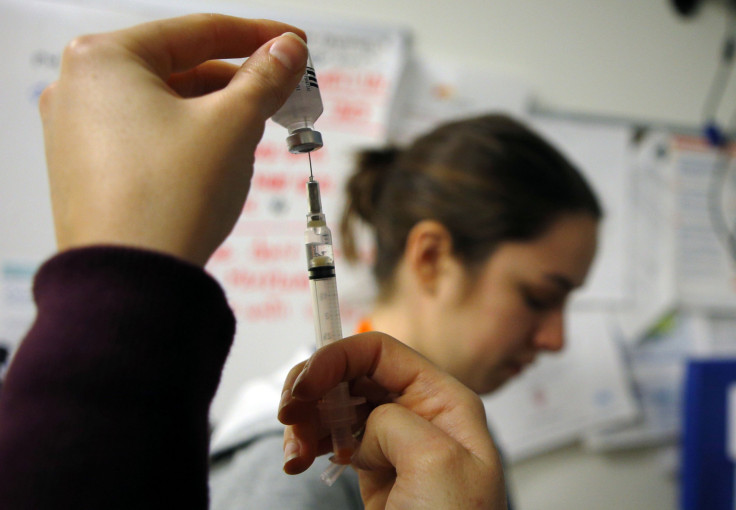The Dangers Of Syringe Reuse In Workplace Flu Shots: CDC

In September, a New Jersey nurse used only two syringes to vaccinate 67 people at a pharmaceutical company against influenza. That means she reused those two syringes to inject the flu vaccine into a large group of employees.
Though the risk of contracting a disease like Hepatitis C or HIV through a shared syringe (the tube in which a needle is inserted) is much lower than that of a shared needle, the incident was still dangerous. The employees had to undergo blood work to determine whether or not they had contracted any of these potentially life-threatening diseases.
Now, the Centers for Disease Control and Prevention (CDC) is following up on the event to ensure that nothing like this occurs in the future. In a recently released report, the CDC urges workplaces and vaccination clinics to remain cautious and thorough.
“Reuse of syringes for multiple patients, with or without reuse of needles, is recognized as a serious infection control breach that poses risks for bloodborne pathogen transmission,” the CDC states in the report.
We can learn quite a bit from the New Jersey incident. The nurse had reportedly only used two multiple dose vials of the vaccine, which meant that the employees didn’t receive the proper amount of vaccine. In addition, the health services company had sent the vaccine to the nurse’s home, where she stored it in her home fridge without keeping an eye on the temperature. It was also reported that she didn’t transport the vaccines properly to the event.
“Although vaccination events outside of traditional health care settings can increase access to vaccines, training and oversight of health care personnel, and vaccine storage and handling can present special challenges,” the report continued. “Companies providing vaccination services should ensure their employees and contracted staff adhere to established guidelines for infection prevention, and vaccine storage, handling, and administration.”
Those guidelines include sending the vaccine directly to the vaccination clinic site to prevent improper handling or refrigeration of the vaccine beforehand. If that’s not possible, the CDC suggests using a portable refrigerator that will keep the vaccine at the proper temperature (which should be monitored continuously).
The flu vaccine is a safe and effective way to reduce the risk of influenza during flu seasons. According to the CDC, studies have shown that flu vaccines lower the risk of illness by 50 to 60 percent in the general population; but doing it properly is the only way to ensure its efficacy.
Published by Medicaldaily.com



























